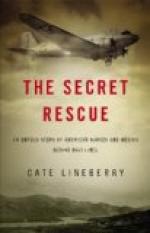“Oh, of course, if you don’t want to help,” cried Paul, with a trace of anger in his voice, “I guess we can get on without you.”
“I’m sure you won’t desert your chum, Fletcher,” said Cowan. “And I think you’re all wrong about defeated candidates. If a fellow makes a good fight and is worsted no fellow that isn’t a cad does other than honor him.”
“Well, if you’ve made up your mind, Paul,” answered Neil reluctantly, “of course I’ll do all I can if Foster will let me out of my promise to him.”
“Oh, hang Foster!” cried Cowan. “He’s a little fool!”
“Is he?” asked Neil innocently. “I hadn’t noticed it. Well, as I say, I’ll do all I can. And I’ll begin now by going over to see him.”
“That’s the boy,” said Paul. “Tell Foster there’s a dark horse in the field.”
“And tell him I say the dark horse will win,” added Cowan.
Neil smiled back politely from the doorway.
“I don’t think I’d better mention your name, Mr. Cowan.” He closed the door behind him, leaving Cowan much puzzled as to the meaning of the last remark, and sought No. 12 McLean. He found the varsity quarter-back writing a letter by means of a small typewriter, his brow heavily creased with scowls and his feet kicking exasperatedly at the legs of his chair.
“Hello,” was Foster’s greeting. “Come in. And, I say, just look around on the floor there, will you, and see if you can find an L.”
“Find what?” asked Neil, searching the carpet with his gaze.
“An L. There was one on this pesky machine a while ago, but I—can’t—find—Ah, here it is! ‘L-O-V-I-N-G-L-Y, T-E-D’! There, that’s done. I bought this idiotic thing because some one said you could write letters on it in half the time it takes with a pen. Well, I began this letter last night, and I guess I’ve spent fully two hours on it altogether. For two cents I’d pitch it out the window!” He pushed back his chair and glared vindictively at the typewriter. “And look at the result!” He held up a sheet of paper half covered with strange characters and erasures. “Look how I’ve spelled ’allowance’—alliwzee! Do you think dad will know what I mean?”
Neil shook his head dubiously.
“Not unless he’s looking for the word,” he answered.
“Well, he will be,” grinned Foster. “Don’t suppose you want to buy a fine typewriter at half price, do you?”
Neil was sure he didn’t and broached the subject of his call. Foster showed some amazement when he learned of Gale’s candidacy, but at once absolved Neil from his promise.
“Frankly, Fletcher, I don’t think your friend has the ghost of a show, you know, but, of course, if he wants to try it it’s all right. And I’m just as much obliged to you.”
During the next week Neil worked early and late for Paul’s success. He made some converts, but not enough to give him much hope. Livingston was easily the popular candidate for the presidency, and Neil failed to understand where Cowan found ground for the encouraging reports that he made to Paul. Paul himself was hopeful all the way through, and lent ill attention to Neil’s predictions of failure.




